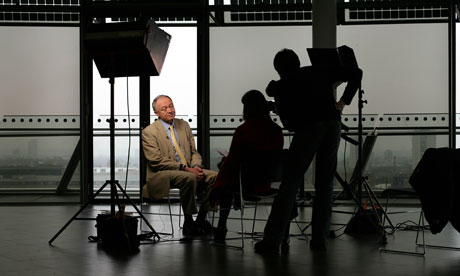
At the height of Britain's political convulsions of the 1980s, the left boasted three charismatic national leaders: Tony Benn in parliament, Arthur Scargill in the unions and Ken Livingstone in the raging trench warfare of local government. Each was subjected to vilification that routinely tipped over into the deranged.
But 30 years on, Red Ken is still standing, having given the Thatcher government a bloody nose, faced down Tony Blair and emerged once again to contest the capital. And he did that with a political strategy that chimed not only with the era, but especially the kind of city London was becoming. As he says in this autobiography: "New forces were changing London, and … I was in tune with them." Before any other British political leader, Livingstone championed emerging social movements – anti-racism, gay rights, gender politics and environmentalism, as well as engagement with Irish republicanism – at a time when to do so was regarded as political suicide. It's rare for any politician to be so comprehensively vindicated: a generation later all those causes have become mainstream.
The contrast with his own background, though, could not be sharper. The most powerful section of this gargantuan book are his memories of growing up in a repressed, working-class Tory household in the south London of the late 40s and 50s. Livingstone never met another child apart from his sister till he was five; his grandmother potty-trained him by "rubbing my nose in the mess"; his parents were so hostile to the publicly owned BBC they wouldn't buy a TV until they could watch commercial television; and his uncle was a member of Mosley's Blackshirts. He recalls his 48-to-a-class primary school being told they were living in "the most advanced country at the heart of the greatest empire in human history".
Escape from such stultification depended on fellow animal research technicians, the upheavals of the 60s and an epic trip across Africa in the company of an ostrich named Horace. But it turns out Livingstone's emancipation wasn't all his own doing: his seaman father had no time for racism, while his ex-dancer mother told her children "how nice" she had found the gay people she had worked with.
This book is not for the faint-hearted: no nuance of the battles for Lambeth's housing department in the 70s is spared, or Labour's tactics to win the 1981 Greater London Council election which turned him into a household name – or, more recently, his struggle to rebut efforts to portray him as a bigot and his mayoral administration as corrupt. But it comes alive in Livingstone's evocation of each period: of the brazen racism of the late 60s Labour right and local Maoist groups organising night-time training to prepare for an armed uprising in the 70s – along with his accounts of conflicts and causes, from Rhodesia and Vietnam to Afghanistan.
It's still startling to be reminded of the scale of the 80s hate campaigns waged against him: he was branded by the Sun the "most odious man in Britain" and by Thatcher as out to impose an "east European style tyranny". The Express described a violent attack on him as "only to be expected" – and all this for supporting cuts in tube fares and equal rights that today even David Cameron endorses.
There were echoes of that during the 2008 campaign in which Boris Johnson ousted him as mayor. The irony is that Livingstone was always a pragmatic populist, more radical American Democrat than Marxist, whose original political heroes were Jack Kennedy and Tony Crosland. But his continued identification with the left – while still managing to win elections – during the long years of rightwing ascendancy was regarded as an offence against the natural order of things and made him powerful enemies.
Throughout his career, however, those enemies regularly rescued him: in the 80s, the banning of his cheap fares policies by the Law Lords, and Thatcher's abolition of the GLC, turned him into a democratic martyr; 15 years later, Blair's shameless rigging of Labour's selection process to block Livingstone helped him win a landslide as London's first elected mayor. Indeed, that election was New Labour's first real political defeat and a lesson that a modern left politics could be electorally successful.
Not that Livingstone's room for manoeuvre as mayor was anything like as broad as at the GLC, for all his success in driving through congestion charging, more buses and affordable housing. There was also criticism from his supporters for embracing the City just as the financial system was going into meltdown, and from others for spasms of offensive irascibility, his stand against Islamophobia and relationship with Hugo Chávez.
It was not that in the end which did for him in 2008, though – nor his stubbornness, without which he certainly wouldn't have survived such a political career. The decisive factor was Labour's deep unpopularity under Brown after the abolition of the 10p tax rate, which overwhelmed the mayor's stronger support base.
Livingstone was in a sense Britain's first postmodern politician, who dined off his celebrity and refused to kowtow to the political establishment. But Johnson – with none of Livingstone's lifelong commitment to London – has outplayed him at his own game, allowing Livingstone to be painted as a truculent has-been. Despite the Tories' unpopularity, the quintessential rightwing establishment Johnson has managed to pass himself off as another maverick, but with better jokes. The odds are currently loaded against a second comeback for Livingstone, one of only a handful of working-class figures still in frontline British politics. But if he were to pull it off, it would be a progressive hat-trick of historic proportions.

